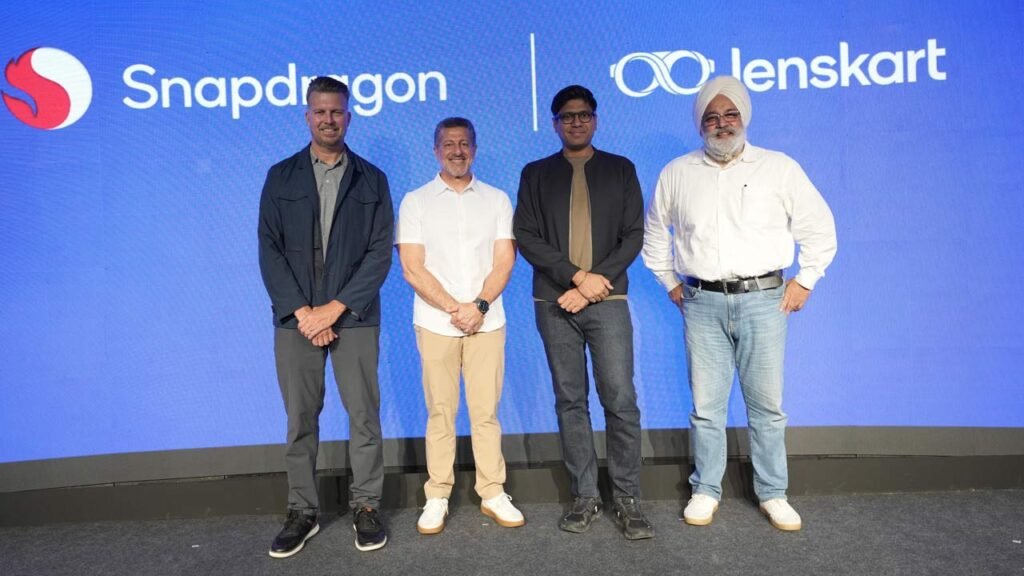Qualcomm hosted its ‘Snapdragon for India – XR Day’ event today, bringing together top Indian developers, industry partners, creators, and media to highlight the country’s growing role in the spatial computing ecosystem.
The event served as a platform to demonstrate the company’s extended reality (XR) vision for India, with immersive demos across sectors like entertainment, education, fitness, and content creation.
Speaking at the event, Alex Katouzian, Group General Manager of Mobile, Compute & XR at Qualcomm Technologies, emphasised how the company’s Snapdragon XR platforms are already powering over 100 immersive devices globally and are enabling next-gen mixed reality (MR), virtual reality (VR), and augmented reality (AR) experiences.
Katouzian showcased a small language model (SLM) running entirely on a pair of AI-powered glasses, illustrating Snapdragon’s capability to support AI workloads across the cloud, on-device, and local environments.
Highlighting the growing intersection of AI and XR, Katouzian noted that Qualcomm’s vision includes enabling smart devices that can “see what you see and hear what you hear,” enabling highly personalised and intuitive experiences in real time.
One of the key announcements was Qualcomm’s partnership with Indian eyewear brand Lenskart to develop AI-enabled smart glasses powered by Snapdragon chipsets.
This collaboration reflects Qualcomm’s broader strategy to bring spatial computing to Indian consumers in a practical, everyday format.
Savi Soin, Senior Vice President and President of Qualcomm India, further outlined the company’s India-specific ambitions.
He stated that India is undergoing a transformation in how digital experiences are perceived and delivered, and that XR will soon become as integral as smartphones.
He emphasised Snapdragon’s ability to balance lightweight form factors with powerful computing, making smart glasses intuitive and viable for daily use.
Soin also linked the technology’s potential to national priorities, stating that spatial computing can empower frontline workers, revolutionise education in underserved areas, and support inclusive digital access.
As it broadens its focus beyond smartphones, Qualcomm looks to be aiming to build a robust XR ecosystem in India that spans hardware, software, and AI-driven applications.



1 Comment
Pingback: Snapdragon for India: Auto Day Shows Smart Mobility Future